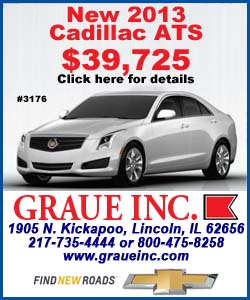 The days are being shortened for the men of my Dad's generation; we are
losing them far too quickly in this new century and soon their memories will
be faded to the point that we will lose that eye-witness account of their
world. For those Dads who were born in the 1920's in the Twentieth Century
need to be listened to with their thoughts and memories being recorded. The days are being shortened for the men of my Dad's generation; we are
losing them far too quickly in this new century and soon their memories will
be faded to the point that we will lose that eye-witness account of their
world. For those Dads who were born in the 1920's in the Twentieth Century
need to be listened to with their thoughts and memories being recorded.
A fellow whose life began in say, 1922 was only seven years old when the
stock market crashed in 1929 sending the world in a tail-spin depression
that had a devastating effect on their lives. Just think of it, at seven
years old this generation of future men would be husbands, fathers and
defenders of our nation as they first became a working member of their
family to scratch out a living during one of the most hurtful depressions in
our history. On their tenth birthday they would be celebrating during the
beginning of perhaps full-family unemployment, complete loss of family
resources and very little, if any, prospect for future improvement.
Having lived through the dust-blowing depression their eighteenth birthday
would be celebrated in 1940 still in depression, but with a looming dark
shadow of war about to erupt. On their nineteenth and twentieth birthdays
they would be welcomed with the draft or volunteering for duty to serve as
fighters in World War II. They would march off to lands across the seas with
guns and bayonets and only with the experience of poverty and depression
under their belts.

For those who survived and returned some would still not make it to their
thirtieth birthday before they returned to a far-away place called Korea to
fight another war. The children of depression and young men of war times,
this generation of men and fathers really didn't start living their lives
until they had reached their thirties.
Once having put the world at peace they set about building their families,
neighborhoods and communities. They participated in one of the greatest
growth spurts in American history. The Military Industrial Complex with its
innovation for advancement in technology and commerce became only a
by-product of their efforts. The sweat-equity they poured into their jobs
and careers built a foundation of solid economic efforts that allowed a
young President in 1963 to declare the presence of a man on the moon by the
end of that decade.
They did all of that and even more; they raised children called war-babies
and baby boomers. They instilled in those pliable minds the love of freedom
and national pride. They established a moral character of "middle-class"
America that forged a strong bond with God and Country that was reinforced
with the likes of John Wayne, Robert Mitchum, Clarke Gable, Jimmy Stewart
and, yes, even Ronald Reagan.
[to top of second column] |
 Working during the week and making family trips to town on the
week-ends was a way of life. Eating out was a treat, buying a new or
used car was the thrill of life, taking in a ball game and watching
the advent of a new thing called television. Watching the first
shows that had come from the radio to television like Jack Benny,
Red Skelton, George Burns and Gracie Allen and the Ozzie and Harriet
show.
Many American Dads during those years participated in family worship
on Sundays, ate meals with the family, bought groceries, paid bills,
and led the family in ordinary life. Dad, along with Mom, was the
leader of the family and children, along with the grandparents sat
on the front porch in the cool of the evening to talk while the kids
caught lightning bugs, skated on the sidewalks or rode the bikes
that Dad had given them for Christmas.
That was the generation of accomplishment. In the span of their
lives they sat on buckboards pulled by horse or mule, ate food from
an "ice box" cooled with a large block of ice delivered to their
homes or picked up at the ice plant in town, drew their own water
from a well outside or pumped it from a kitchen sink pump, received
telegraphs in emergencies, rode the train, saw the first cars roll
off of Ford's assembly line, witnessed the first generation of
airplane flights, but still managed to see in their lifetime Neal
Armstrong walk on the moon.
Today those folks are in their late eighties and nineties. They have
lived a rich, full life of accomplishment that has left us with
someplace much better than what they received in their first thirty
years of life. My Dad was one of those in that generation and his
story deserves to be remembered. Even though there are not near as
many of that generation left, if your Dad of that generation
remains, the best thing you can give to him and to yourself is to
sit down with him on this Father's Day and listen to his story.
Write it down, share it with others; remember it, and give it to
your own kids.
[By JIM KILLEBREW]
Click here to respond to the editor about this
article.

 |